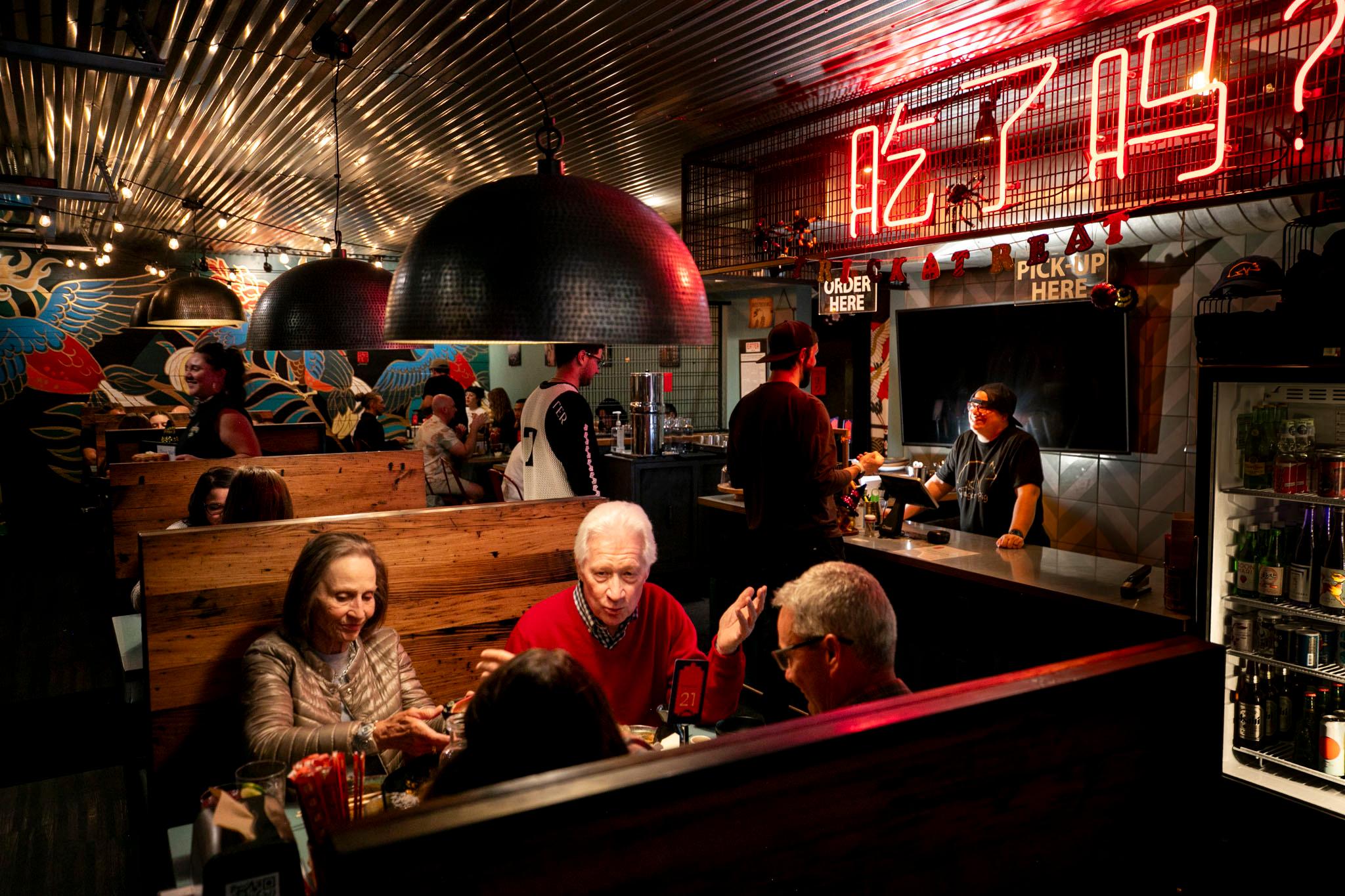
Updated March 15, 2025, at 9:30 a.m. to reflect further changes to the bill.
State lawmakers are backing off their effort to lower the tipped minimum wage for restaurant servers, bartenders and other tipped workers in places like Denver, Boulder and Edgewater.
Facing intense blowback from workers and fellow Democrats, the sponsors of HB25-1208 introduced major changes to the proposal at a House Finance Committee meeting on Friday night.
The original bill would have lowered the base wages that restaurants must pay to servers, bartenders and other employees who get tipped.
Now, the sponsors are trying a new approach. The bill would no longer force cities to reduce, freeze or slow the growth of the tipped minimum wage, as previous versions would have done.
Instead, the current proposal would give local governments the option to lower the tipped minimum wage — or keep it the same — within their own borders. That's a change from Colorado's current system, where the tipped minimum is always $3.02 less than the regular local minimum wage.
The original proposal was "a pretty jarring thing for folks to have to deal with, and we've listened to that feedback, and we really want to strike a better balance," said Rep. Steven Woodrow, a Democratic sponsor.
The amended version, he said, "is providing local control." The House Finance Committee passed the amended bill on Friday night, sending it onto the full House.
The original proposal would have had the biggest effect in Denver, where it would have cut base pay for some restaurant workers from about $16 an hour to about $12 an hour — reducing the “tipped minimum” that they get in addition to cash tips. The change could have cost some servers thousands of dollars per year.
In the amended bill, the lowest allowable tipped minimum wage would be $11.79 per hour at present — which is already the tipped minimum wage for most of Colorado. Cities like Denver could also choose to take no action, keeping their tipped minimum wages at current levels. However, the bill would also keep an upper limit on the tipped minimum wage: It would still have to be about $3 less than the regular minimum wage in all cities and counties.
The change was enough to get the bill past the Finance committee.
But some Democrats and labor advocates remain opposed to the measure, saying cities should also get the option to abolish the tipped minimum wage altogether, forcing restaurants to pay all workers the regular minimum wage in addition to tips.
"I think our communities know how to handle this situation best, and that full local control is necessary, and this does not give my community that authority," said Rep. Yara Zokaie of Larimer County.
The sponsors also briefly tried a third approach on Friday. They proposed a version that would have forced cities like Denver to freeze or slow the growth of the tipped minimum wage, instead of reducing it, but that proposal failed because it still didn't have enough support to pass the House Finance committee. Instead, the sponsors completely backed off the idea of forcing cities to change their tipped minimum wage.
The tipped minimum wage is the amount that the business owner must pay, every single hour, no matter how much money the employee gets in tips. It is lower than the regular minimum wage since eligible employees are getting it in addition to tips. Restaurants still must guarantee that all workers receive at least the regular minimum wage when combining tips and base wages, which is currently $18.81 in Denver.
Some have called for the state to get rid of the tipped minimum wage altogether, saying it makes workers beholden to tips and vulnerable to abuse.
In contrast, some restaurant owners have argued that the tipped minimum wage has grown too fast, because of the way it is calculated. Under current law, the tipped minimum is always about $3 less than the regular minimum. So as the minimum wage has climbed with inflation, the tipped minimum wage has stayed close behind it.
Back in 2005, the state’s tipped minimum wage was $2.13, making up less than half the minimum wage at the time. Today, the tipped minimum wage statewide is 77 percent of the regular minimum wage.
The effect has been more pronounced in cities with higher minimum wages. In Denver, the tipped minimum is 84 percent of the regular minimum.
The bill also is sponsored by Democratic Rep. Alex Valdez and Democratic Sen. Judy Amabile of Boulder.
Denver Councilmember Sarah Parady is one of the bill’s critics, and she criticized the process for the amendments, saying there was little notice given before it headed to the Finance Committee, limiting the ability of opponents to respond.
“Denver is the most impacted jurisdiction by this, and for me to be trying to absorb an amendment this complex … It just isn't enough time, and it's unusual,” she said earlier on Friday.
Political consultant Scott Wasserman said sponsors shared the amendment “as soon as we knew what it was going to do,” adding: "I think we’re doing the best we can and the process is working.”
The bill will go next to the full House, and then to the Senate, where it would also have to pass committee and floor votes. It could face more amendments down the line.
Editor's note: This article was updated to reflect changes made at the House Finance committee on Friday night.
Haylee May contributed to this article.








